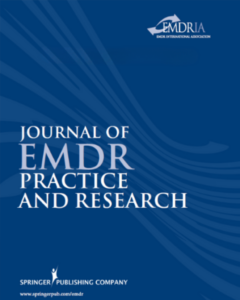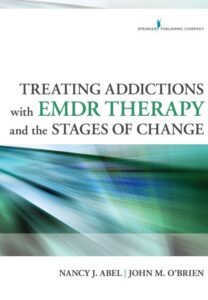El Protocolo de EMDR para Incidentes Críticos Recientes: Breve Reporte de Aplicación en Situación de Masacre Humana (Journal of EMDR Practice and Research)
Los resultados mostraron que una sesión del Protocolo EMDR para Incidentes Críticos Recientes (EMDR-PRECI) produjo una mejora significativa…
Read MoreEye Movement Desensitization and Reprocessing as an Adjunctive Treatment of Unipolar Depression: A Controlled Study (Journal of EMDR Practice and Research)
Patients with unipolar primary depression were treated with CBT or CBT & EMDR. Patients treated with adjunctive EMDR saw additional benefit.
Read MoreThe Effects of Bilateral Eye Movements on EEG Coherence When Recalling a Pleasant Memory (Journal of EMDR Practice and Research)
Participants were exposed to bilateral eye movements during the contemplation of a positive memory and measured with electroencephalographies.
Read MoreEye Movement Desensitization and Reprocessing Treatment of Nightmares: A Case Report (Journal of EMDR Practice and Research)
Client with depression and chronic nightmares was treated with EMDR and Luber’s (2010) protocol for nightmare processing.
Read MoreEMDR With Traumatized Refugees: From Experience-Based to Evidence-Based Practice (Journal of EMDR Practice and Research)
Although EMDR is practiced with resettled refugees, only five small studies have been conducted on EMDR with this population.
Read MoreFacilitating access to emotions: Neural signature of EMDR stimulation (PLoS ONE)
This study examined whether there is increased activation of the amygdala during bilateral stimulation (BLS) in EMDR therapy.
Read MoreEMDR interview Francine Shapiro
In this video, Joany Spierings of the EMDR Netherlands Association (Vereniging EMDR Nederland) interviews EMDR founder Francine Shapiro.
Read MoreEye movement desensitization and reprocessing for posttraumatic stress disorder in bipolar disorder (Psychiatry Investigation)
There is evidence that posttraumatic stress disorder (PTSD) is more prevalent in patients with bipolar disorder.
Read MoreTreating addictions with EMDR and the stages of change (Springer, 2014)
This book provides a practical roadmap to using the Stages of Change Model and EMDR therapy for effectively treating addictions.
Read More




